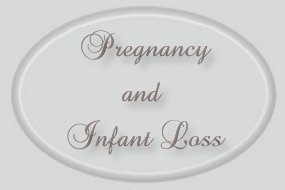
|
Shani is a FAITH committee member, GeoCities Community Leader, grief counselor and a stay-at-home-mom to six children. Her homepage, Shani's Shoe, http://www.oocities.org/Heartland/Woods/6999 - is dedicated to parenting issues and grief support. When I was pregnant with my first child I was very naive about what could go wrong. Even while I was in the hospital on bed rest - I had the "not-going-to-happen-to-me" attitude. My son, Christopher Michael, was born June 20, 1988, at 24 weeks gestation, weighing only 1 pound 9 ounces. He had a tiny cry to match his tiny body. He spent his short life in the NICU (Neonatal Intensive Care Unit) and died 7 hours after his birth, in my arms. After his death, I found myself immersed the grief process, though I was not aware of it at the time. I questioned myself, I questioned my faith, and I questioned the world. What could I have done differently? Was it my fault? Where were you, God? How could this happen to me? I felt surrounded by pregnant women and babies - were they following me around - or was it my imagination? A diaper commercial would dissolve me into tears. My arms were so noticeably empty! I was a mother without a child! Just when the shock and numbness work off and I needed support the most was when the rest of the world thought I should be "over it". Time is the greatest healer of all but I will always remember the baby I lost. I have been blessed with 6 children after Christopher, but not one of them has ever replaced him in my mind or in my heart. Looking back now I know what I went through was very normal, but then I questioned my sanity. I am amazed at how many people have lost a child or baby - I was truly not as alone as I felt. I have learned that the amount of grief you experience is not based on the length of a pregnancy or the length of a life. Everyone has the same right to grieve and heal. I've also learned that by supporting each other, sharing with each other, we can ease some of the pain. What can I do to help someone who has experienced pregnancy/infant loss? As a friend or family member of a person who has experienced this type of tragedy, you may not know what to say, how to act, or how to help. There is no simple, perfect answer to comfort bereaved parents, but by being there, you CAN help. Saying simply, "Sorry." can go a long way. Avoid using cliche's such as, "It was God's will." "You are young, and can have more children." "It was meant to be." "You need to get over it." "It's time to get on with life." "I understand how you feel." Also avoid telling them what you think they should do, like; "You should get out more." "You need to stop thinking about it." "Why don't you put away the babies things?" Be understanding and listen. You may find their behavior disturbing, preoccupied with thoughts of the baby, extreme sensitivity to anything relating to pregnancy/babies, anger, blame and guilt. All of these reactions are part of the grief process. Allow them to express their feelings, even if they have told you the same things over and over again. Sharing thoughts and feelings they have helps them to heal. Instead of saying, "I'm here if you need anything." offer concrete examples of how you can help, such as; cooking, cleaning, babysitting, or running to the store. Remember. You may be afraid of "bringing it up" for fear of bringing back painful memories. But don't be afraid! Ask how they are doing, say the babies name, share a memory, and sending a card on special dates. (Birthday/Anniversary of the date of death). By showing you remember helps shows you care! Finally - be patient and kind. Remember, for the first few months - the parents may be in a state of shock or numbness. You may think this is an active time of grief, but it is after the shock and numbness wear off - that they'll need your support the most! The grief process does not have a set time table. Give them the time to grieve and heal.
|

